40's
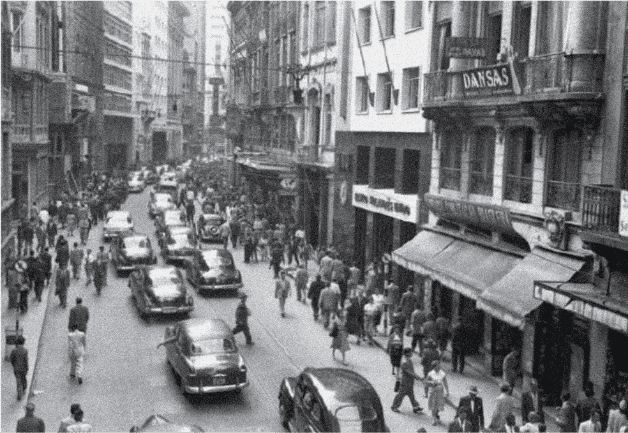
The beginning
of an era
A U.S. citizen and a Brazilian: though an unlikely partnership at the time, forged in the midst of an expanding Brazilian legal system, this alliance led to the creation of a law firm that would eventually become one of the largest and most respected in Brazil. Demarest e Almeida was officially founded in 1948, with four small rooms on the fifth floor of 15 de Novembro Street, in the center of São Paulo.

Practicing Law in the 40's
Ruby rings. Doctorates. Legalese. At the time, traditional law firms in Brazil were heavily centered around the figure of the lawyer: an independent and irreplaceable professional, in following with the precepts of Romano-Germanic Law. In contrast to this, Demarest e Almeida opted to join the select group of law firms whose brand had always prevailed over lawyer names.

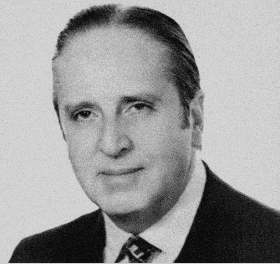
João Batista
Pereira de Almeida
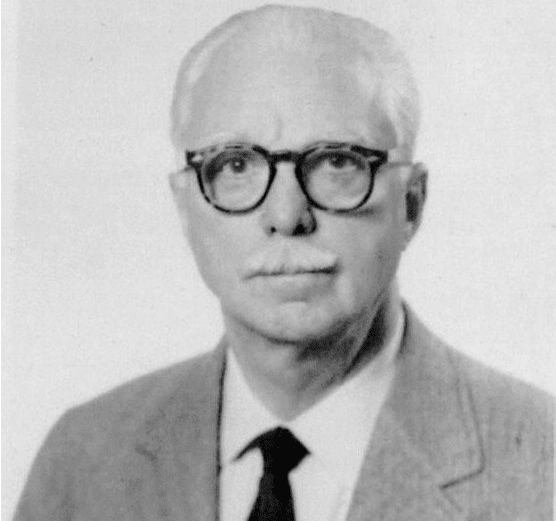
Kenneth E.
Demarest
From a traditional family to the legal world
Born on January 4, 1919, João Almeida was part of a coffee farming family in Araraquara, SP. He attended the Largo de São Francisco Law School, part of the University of São Paulo (USP) and which was well known as the starting point for the careers of numerous state governors and presidents in Brazil. Despite this, however, Batista never took any special interest in politics.
He had always set his sights on Business Law. After a few years gaining experience at his cousin’s firm (Olegário Pereira de Almeida), João Batista was invited by Roberto Simonsen, president of the Federation of Industries of the State of São Paulo (Fiesp), to structure and lead the legal department of the organization. The perfect job for a professional intent on establishing close relationships with industrialists.
The pioneer from the U.S. with a dream of creating bridges
Born in New Jersey on August 14, 1897, Kenneth attended Princeton University, where he obtained his Bachelor of Laws from New York Law School in 1920. Between 1920 and 1930, he practiced law in the U.S. before moving to Brazil to work at Electric Bond and Share. The company had recently opened a Brazilian branch, the American & Foreign Power Company (Amforp), in order to join the competitive electricity concession market. Some years later, he left Brazil to serve in the U.S. Navy during World War II. After the war ended, he returned to New York, where he worked for two years for Willkie Farr & Gallagher. In 1947, he moved back to Brazil and, one year later, formed a partnership
with João Almeida to found a law firm that was one of a kind.And, while his career as a lawyer was already firmly established, it is impossible to mention Kenneth Demarest without acknowledging some other achievements of historical proportions. He built a legacy of impactful work throughout one of the most eventful time periods in history — from carrying out attaché duties as a Navy informant deployed to gather intelligence in Portugal, and who was wanted by secret agents and influential politicians, to establishing communications with Germans that were opposed to Hitler, among other feats.
50's
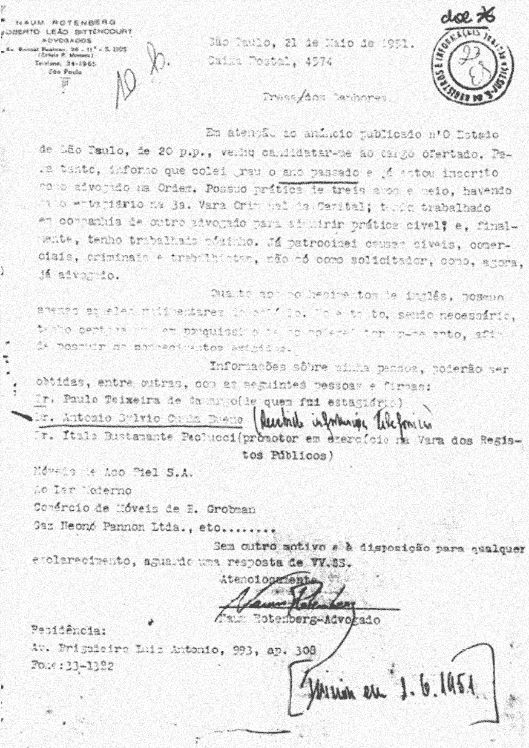
Hiring the first lawyer
A one-line ad in Brazilian newspaper Estadão: “Lawyer wanted”. Without a company name, the fledgling law firm had a single requirement: to submit a letter. Recent graduate Naum Rotenberg seized the opportunity. After one interview, he joined the team consisting of Kenneth Demarest, João Batista, one receptionist and two secretaries.

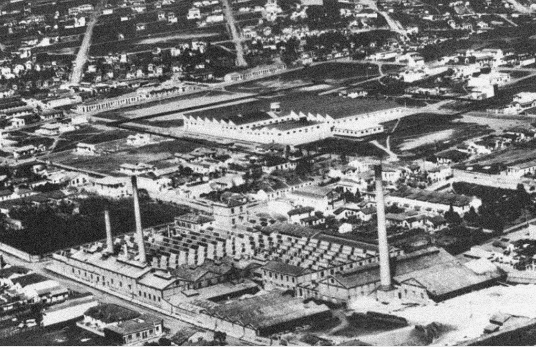
A bridge
between businesses
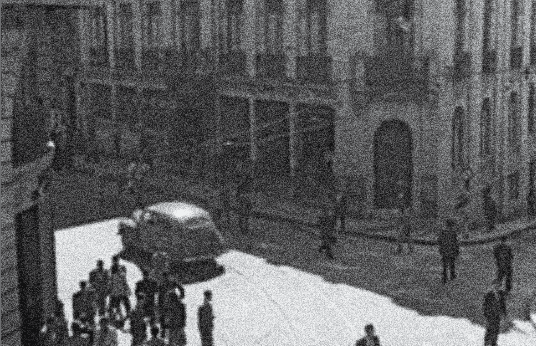
New windows
of opportunities
Two major events would mark the 1950s in Brazil: Brazilian industrialization and the arrival of a number of international companies. Demarest e Almeida played an essential role in establishing business relationships with U.S. companies, as well as providing the necessary know-how and resources to foster the development of numerous other industrial sectors, such as the chemicals, pharmaceuticals, and paper and pulp sectors, from which Demarest e Almeida retained significant clients.
Despite a modest number of clients, Demarest e Almeida’s office was simply too small to welcome their visitors. As a result, Demarest e Almeida moved to a new and promising space in the city center of São Paulo. From 15 de Novembro Street to Boa Vista Street, and from the fifth floor up to the ninth floor.
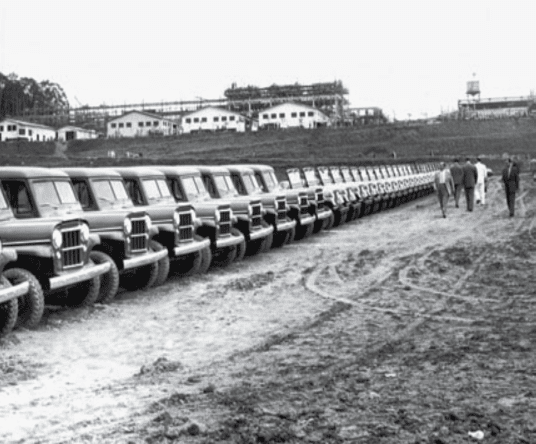
50 years in 5
for Demarest
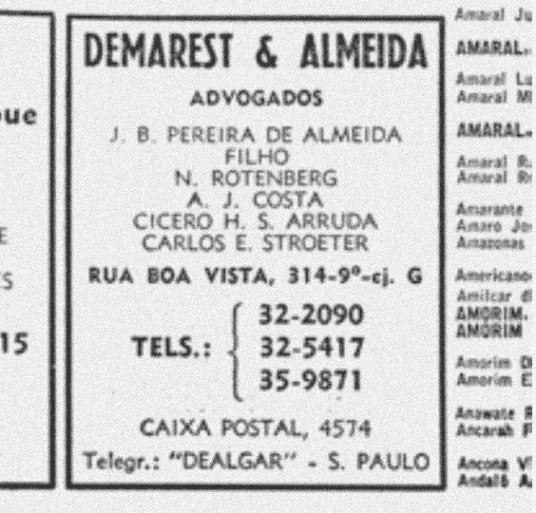
New talent
for the firm
The wave of progress that moved into Brazil in the 1950s also benefited Demarest e Almeida. From companies in the assembly sector to those in parts manufacturing, the firm retained major clients from the automotive industry. One of these was Willys Overland, whose projects required not only legal know-how, but also a solid relationship with local authorities and banks. Naum was in charge of negotiating an essential issue with the mayor of São Bernardo do Campo (SP) regarding the location of the factory. In turn, João Batista Pereira de Almeida capitalized on his prestigious reputation at Fiesp to attract Brazilian companies, which represented up to 40% of the firm’s portfolio.
More lawyers joined João Batista, Kenneth and Naum as members of the firm, such as Cícero H,S, Arruda, Carlos Emilio Stroeter and Alcides Jorge Costa. The latter would eventually become tenured professor at the Largo de São Francisco School of Law and establish a renowned international career within the tax sector. One year later, two more lawyers joined the team: Francisco de Souza Mattos and Noé Araújo. João Batista: “We had our hands full; new clients were coming in every single day.”

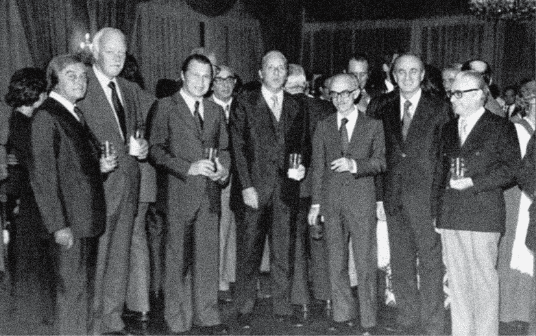
Strong and prosperous friendships
Due to new products and acquisitions, long-standing clients such as Encyclopaedia Britannica and General Foods needed increased legal assistance. In parallel, new clients and relationships were established within the petrochemicals industry, such as Alba S/A, a Borden Chemical subsidiary, and Union Carbide, as well as in the chemicals industry, including laboratories such as Bristol Meyers, Squibb, Pfizer, Merck-Sharp, UpJohn, Fontoura Wyeth and Miles.
60's
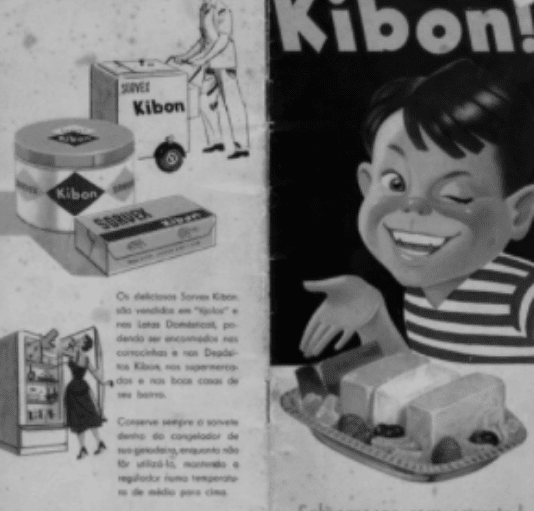
Ice-breaking mergers and acquisitions
Brazilian ice cream giant Kibon went through a sequence of acquisition procedures. First, Kibon was acquired by General Foods Corporation, in 1960; subsequently, by Philip Morris, in 1985; and finally, by Unilever, in 1997. Demarest e Almeida assisted Kibon in the legal proceedings of these complex transactions, which always involved a great deal of effort and responsibility. The merger and acquisition operations of the firm increased consistently every year. In fact, around three to four transactions were carried out each week throughout the 1960s.

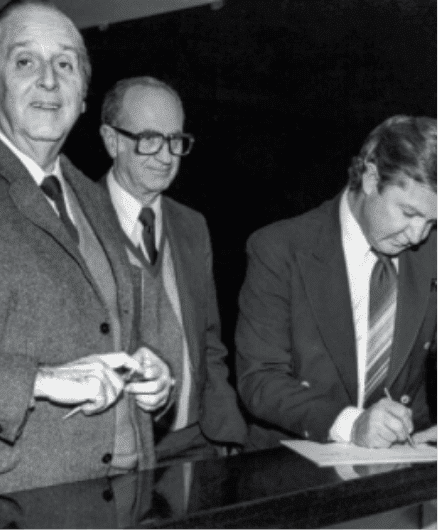
New directions without Kenneth Demarest
Kenneth Demarest’s decision to depart the firm and return to the U.S. left an open position for partner, which was filled by Naum Rotenberg. One year later, the hiring of Altamiro Boscoli, Orlando Di Giacomo, Jouacyr Arion Consentino and Rogério Lessa laid the foundations of an initiative to retain young lawyers and provide them with training.

Naum
Rotenberg
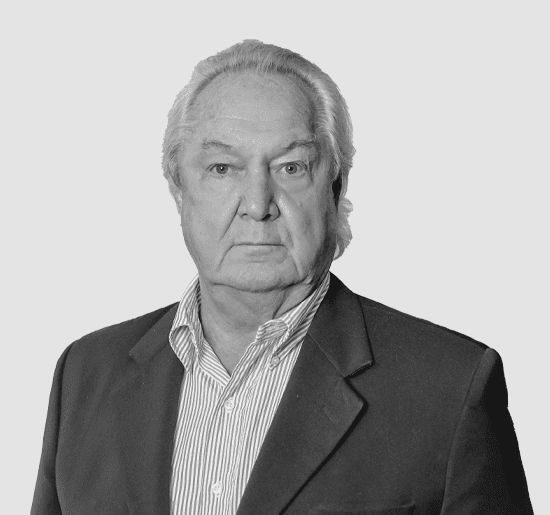
Altamiro
Boscoli
From Demarest’s first lawyer to partner
Naum Rotenberg was born in Niterói (Rio de Janeiro) in 1927, son of Ukrainians who migrated to Brazil to escape from the persecution against Jews, which persisted even after the beginning of the Communist Revolution. He graduated in Law from Faculdade de Direito do Largo de São Francisco in 1950. The following year, he responded to an ad published by Brazilian newspaper O Estado de São Paulo – shown by his father –, informing that Demarest & Almeida was looking for a lawyer. A few days later, he joined the firm and, since then, has had a very successful career, growing side by side with Demarest until he became a partner. Rotenberg integrated both the Executive Board and Administrative Council of numerous companies. He also served as President of the Union of Frozen Foods and Deep-Frozen Foods, affiliated with the Federation of Industries of the State of São Paulo (“FIESP”). He is extremely well-regarded among those who know him personally, thanks to his enthusiasm, sense of humor, and his conciliatory profile. “Throughout my life, I have learned that waiting for a stroke of luck is not an option to achieve one’s dreams. You must stay, fight, and succeed.”
A great leader
Born in 1939, in Presidente Prudente (São Paulo), Altamiro Boscoli graduated in Law from Faculdade de Direito do Largo de São Francisco in 1962. Still in 1962, he visited the USA – as Vice-President of Centro Acadêmico XI de Agosto – with a group of student leaders from all over Brazil. On this occasion, they were welcomed by then President John Kennedy and his brother, Robert Kennedy – US Attorney General at that time (Minister of Justice). During this visit, the group also attended several lectures given by renowned professors and diplomats, such as Henry Kissinger. Altamiro joined Demarest in 1965, when the firm had four lawyers, shortly after obtaining his master’s degree in Law from Harvard Law School (USA). Having built a solid career, he has become one of our greatest leaders, playing a fundamental role in major deals involving national and foreign companies. Alongside Demarest’s founders, Boscoli consolidated Kenneth and João Batista’s dream of creating a prestigious international Big Law in Brazil.

History knocks
on the door
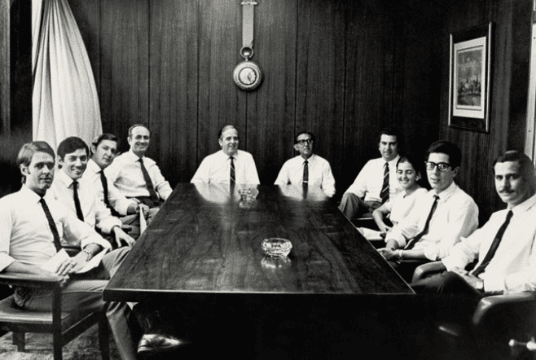
A time for
experts
In the first years of the military dictatorship in Brazil, between 1964 and 1968, law firms were in high demand, a trend that would persist in subsequent times of political and economic uncertainty. Such demand existed due to companies investing less, but seeking assistance from law firms to protect their business from increasing risks and potential abuse of authority by the Brazilian government. Additionally, companies within the tax sector in Brazil were heavily impacted by the publication of the Brazilian Tax Code.
Instead of waiting for the political landscape to settle down, the partners at Demarest e Almeida decided to invest in the future. The firm moved from the office on Boa Vista Street, which had become too small, to the Conde Prates building, on Líbero Badaró Street, also located in the historical center of São Paulo. The change in address coincided with the development of the Tax and Labor areas, as well as the initiative to specialize the lawyers at the firm – given that thus far all lawyers at the firm advised on cases from any area of law.
70's
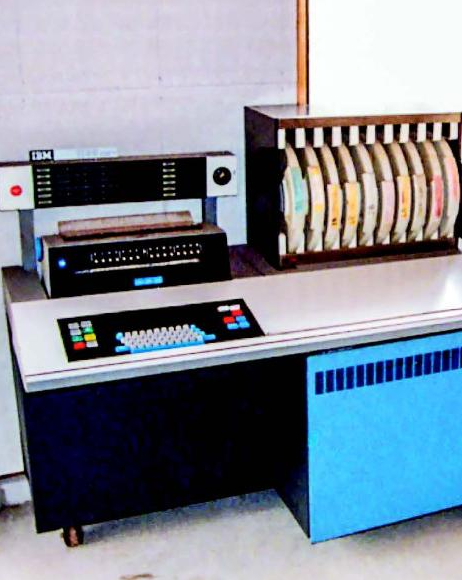
The first law firm to use
computers in accounting
Through a partnership with client Singer, Demarest e Almeida became the first law firm to use information technology. Altamiro sought a few of the largest law firms in the U.S. to find out which computers these companies used. He found out, however, that they did not use computers. Demarest e Almeida was a pioneer not only in Brazil, but possibly in the entire world.

80's

A study center approved by thousands
A united front among law firms to collaborate on the defense of common interests. Orlando Di Giacomo Filho organized meetings with members from other law societies, resulting in the creation of the Law Firms Study Center (CESA), which eventually became a reference in the area. Di Giacomo acted as president of CESA for several years, placing Demarest in a key role within the organization.

DHL and the Correios monopoly
Mike Cannon, from DHL, came to the firm with a seemingly impossible task: to obtain a license for the international transport of documents and parcels. It was important to show that global mail delivery services played a central role to expand business between different countries. Cannon argued that the monopoly provided for in the Brazilian Constitution was limited to letters and telegrams. Finally, the activity was regulated and several other companies initiated operations in Brazil, among them UPS, TNT and FedEx.
90's

The first Brazilian
law firm to put down
roots in New York

Combating
unconstitutionality
In 1990, the firm opened a branch in New York to get closer to establish a closer relationship with major international clients. In the same year, the firm opened a branch in Brasilia and, in 1992, in Rio de Janeiro. The plan was to advocate for increased professional competition.
The economic plans of the commonly named “Collor Era” (Brazilian president Fernando Collor de Mello's tenure between 1990 and 1992) significantly increased the demand for legal representation, given that they contained unconstitutional provisions against which it was necessary to protect clients. In order to curb the government’s eagerness to collect taxes, seize assets and create compulsory deposits, Demarest e Almeida was compelled to file for a series of injunctions. Numerous individuals awaited the Federal Justice Court to release assets that had been seized through Plano Collor (economic measures aimed at stabilizing inflation, which resulted in countless problems for Brazil). One team eventually filed more than 300 injunctions to release their clients’ assets.
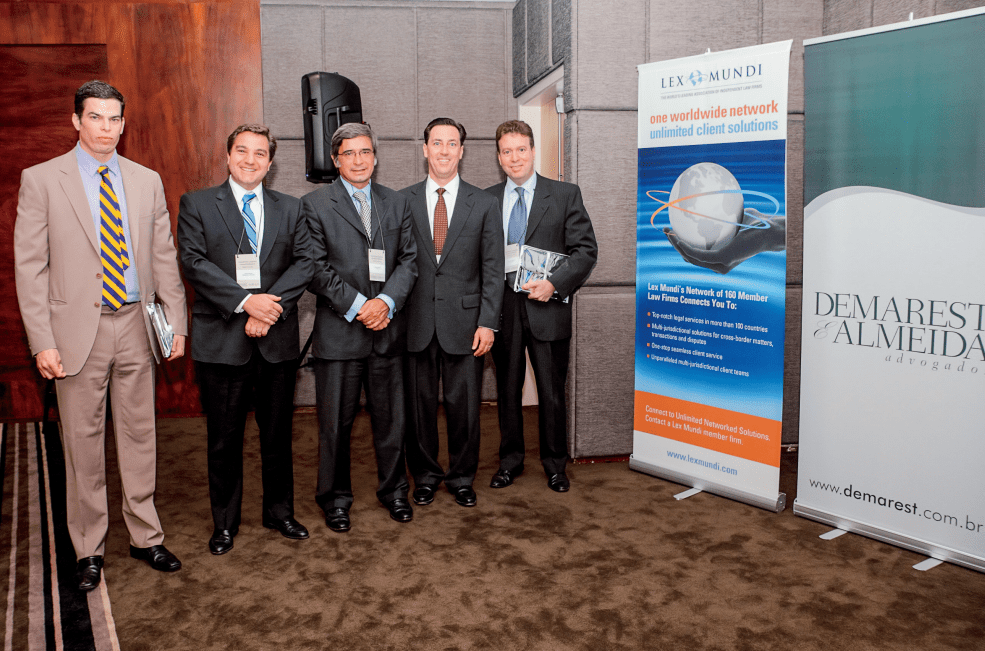
Global Firms and
Lex Mundi partnership
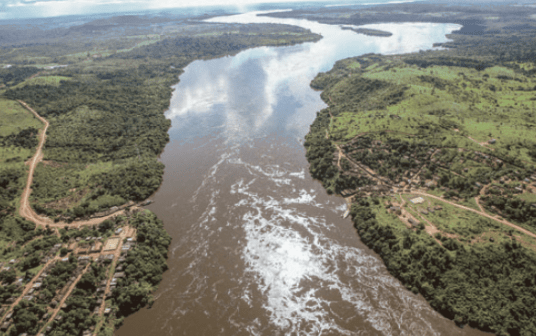
A change
in nature
U.S. law firms with more than 1,000 lawyers spreading around the world and interested in all international operations. In response to the intensive expansion of these global firms, Demarest e Almeida adopted the strategy of operating within a network of law firms. In 1992, the firm joined Lex Mundi: the largest network of independent law firms in the world.
In light of increasing concerns regarding environmental issues, the firm engaged in a new sector: the environment. Advice regarding environmental permits was in high demand, including new requirements to be met. The firm would subsequently work on major hydroelectric projects, such as Belo Monte (PA), from the drafting and negotiation of construction consortia to representation in actions filed against environmental licensing.

Flying Embraer
towards new heights
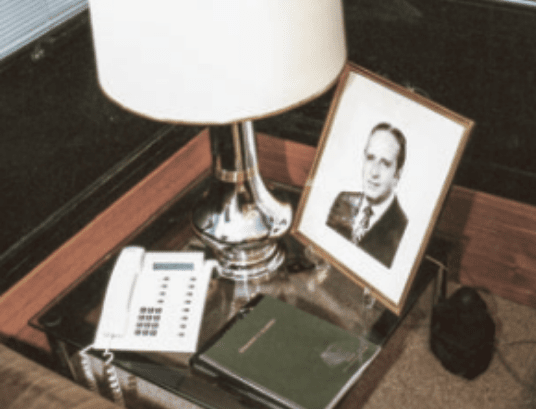
A move towards greener
(and safer) pastures
The firm represented the control consortium of Brazil's multinational aerospace manufacturer, Embraer, following the privatization of the company in 1994, despite all the political disputes involved in the matter – Embraer was one of the main Brazilian state-owned companies at the time. The tremendous amount of progress achieved by Demarest e Almeida only validated the firm’s decision to take the case. Since then, Embraer has grown more than ten times.
The central region of São Paulo had become increasingly deteriorated and unsafe. Clients were also forced to face heavy traffic and struggled to find parking spaces. As a result, Demarest e Almeida moved its headquarters to Alameda Campinas, in the Jardins region of the South Zone of the city of São Paulo. This migration would eventually set a widespread trend among companies. Judicial deadlines became an obstacle for the litigation teams of the firm, due to increased distance from central areas. However, organization and technology enabled the firm to make a smooth transition and swiftly overcome such challenges.
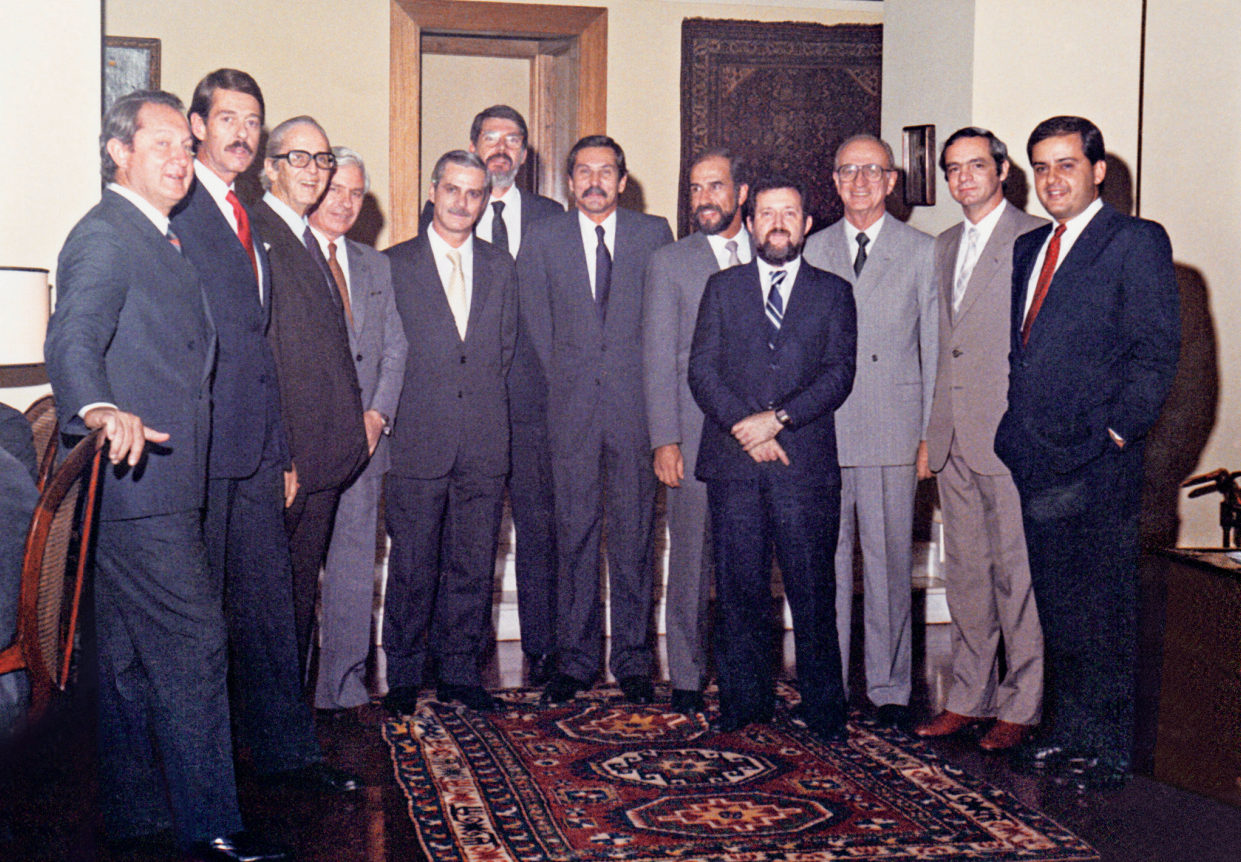
A pioneer from the start
In line with the innovation trend that influenced several areas of law, the firm created practice areas concentrated in sectors such as biotechnology, insurance, social security, international trade, energy, infrastructure, among many others. This movement was driven by the privatization trend in Brazil, as well as new foreign investments, and was an early example of pioneering initiatives at Demarest.
2000's
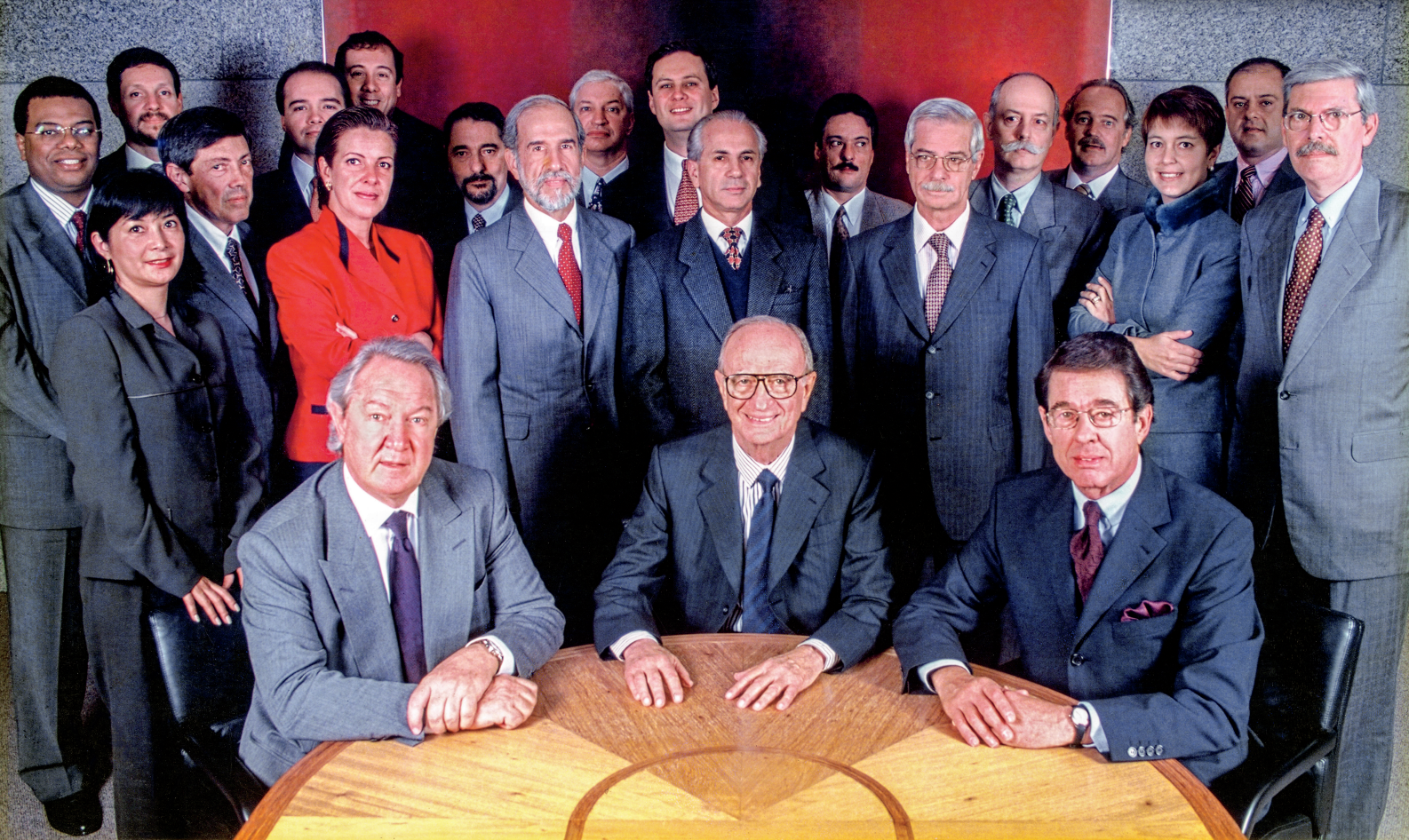
Four times
the talent in
a new millenium
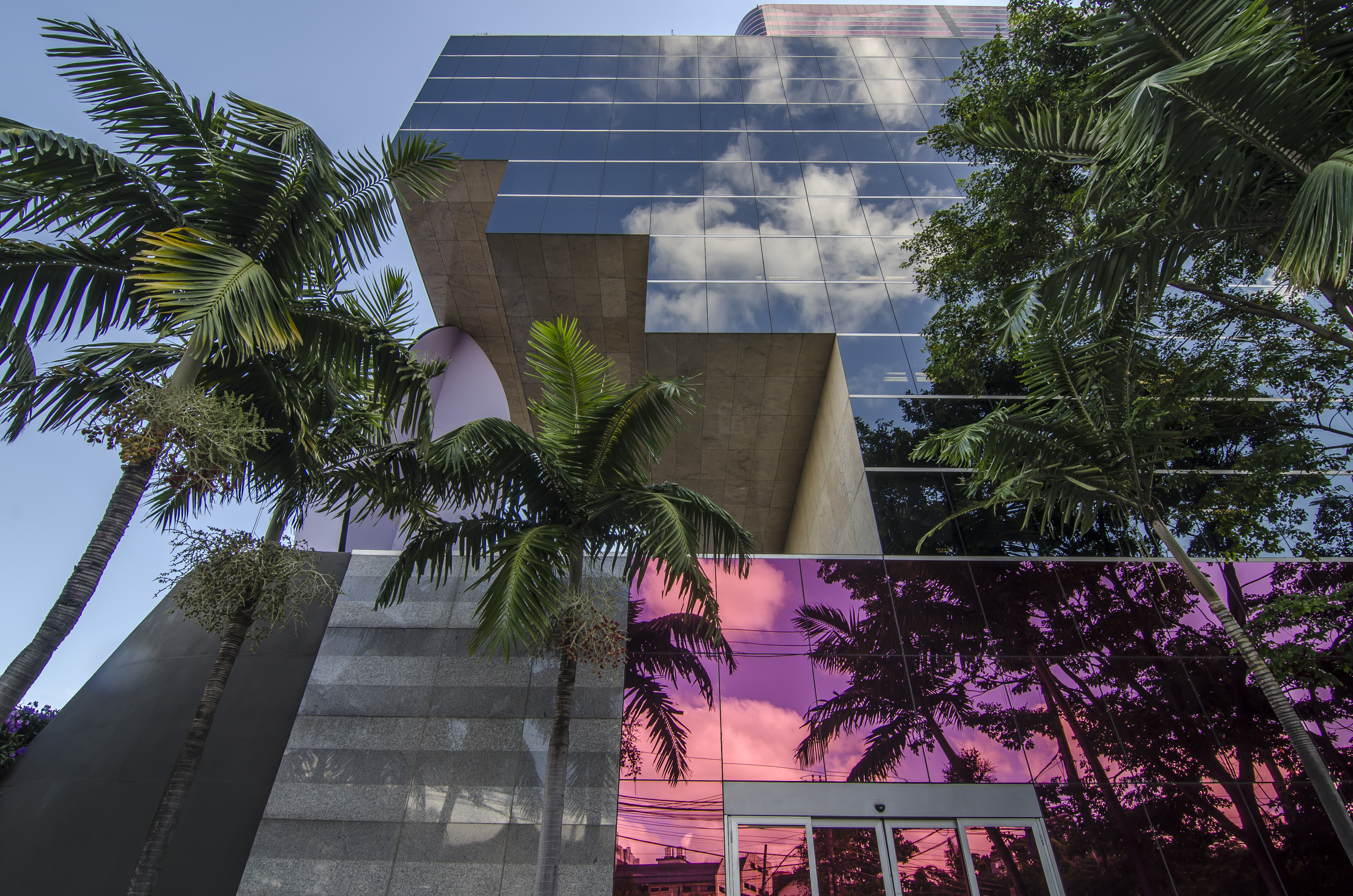
A futuristic
address for
a bright future
By the turn of the millennium, the number of lawyers in the firm had virtually quadrupled: from less than 50 lawyers in 1995 to nearly 200 professionals in 2000.
The firm left Alameda Campinas to settle down next to the futuristic building that houses the Instituto Tomie Ohtake, in the Pinheiros area of the West Zone of the city. Demarest e Almeida occupied the entire six-story building that is annexed to Tomie Ohtake, famous for its inverted pyramid shape. The ultra-modern environment was a perfect fit for a promising new era of innovations.
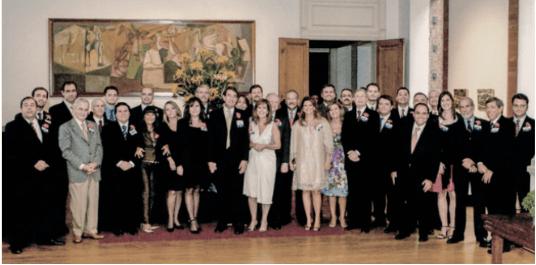
Pioneering the expansion in Brazil
In order to compete with up-and-coming law firms, Demarest e Almeida adopted the strategy of opening branches of the firm in the main capitals of Brazil, in parallel with securing partnerships with other well-established law firms. As a result, the Campinas branch (SP) was created. Meanwhile, the firm established partnerships in Belo Horizonte, Fortaleza (CE), Maceio (AL), Porto Alegre (RS), Recife (PE) and Salvador (BA). The ultimate goal was to establish a network aimed at defending local cases, as well as attracting new clients.

Social responsibility
and timeless culture

The creation of international desks
Since joining the firm, Orlando Di Giacomo had always managed to combine long business days with weekends dedicated to making friends and spending quality time with them. His attention to social responsibility extended beyond friendships, as he actively participated in initiatives initiated by CESA’s Community Advocacy and Social Responsibility Committee, which brings together representatives of the most important Brazilian law firms. One of the committee’s achievements was the publication of the book “Guide to Sustainable Law Practice”.In memoriam: 1965 - 2012
In the 2000s, the hiring of Korean lawyer and professor Hee Moon Jo introduced a new project: the creation of a Korean Desk to strengthen international negotiations, given the importance of having a professional that was capable of clarifying misunderstandings and preventing issues resulting from language and cultural barriers. Subsequently, the firm created the German Desk, French Desk, Ibero-American Desk, Israeli Desk, Japan Desk and China Desk, all formed by lawyers with experience in the legislation and, of course, fluent in the language of each respective country.
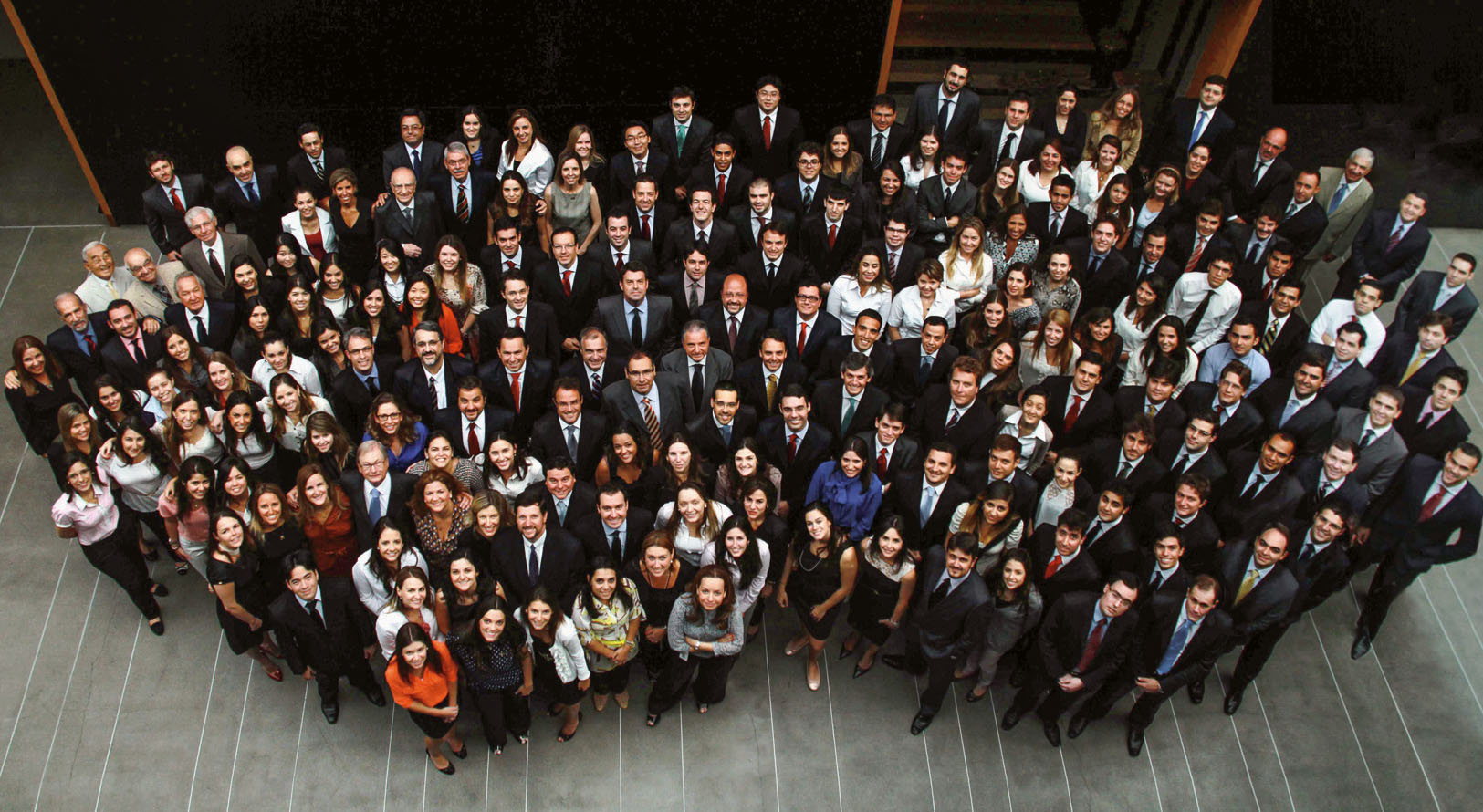
An eye on the future and both feet on the ground
The firm abandoned the approach of mass litigation and concentrated its efforts back on its original mission: to provide truly exceptional and dedicated legal services to major companies. As such, the firm initiated the development of five-year strategic plans.

AFTER 2010

From Demarest & Almeida to Demarest Advogados
The surname “Almeida” remained in the firm’s legal name, but gave way to the word “Advogados” (in English, “lawyers”) in the firm’s trade name. “Demarest Advogados” was launched as a new brand, a pioneering branding initiative that aimed to reposition the firm for the future, concentrating on excellence in a full-service format.

An award year
The firm was recognized as Brazilian Law Firm of The Year by the International Legal Alliance (Demarest would eventually win the same award in 2017 and 2019) and as Brazilian Tax Court Firm of the Year by the International Tax Review. In addition, Demarest Advogados published the firm’s first “Citizenship Report”.Finally, the incorporation of the insurance boutique JBO Advocacia reinforced the firm’s insurance practice area, which had existed since the year 2000.

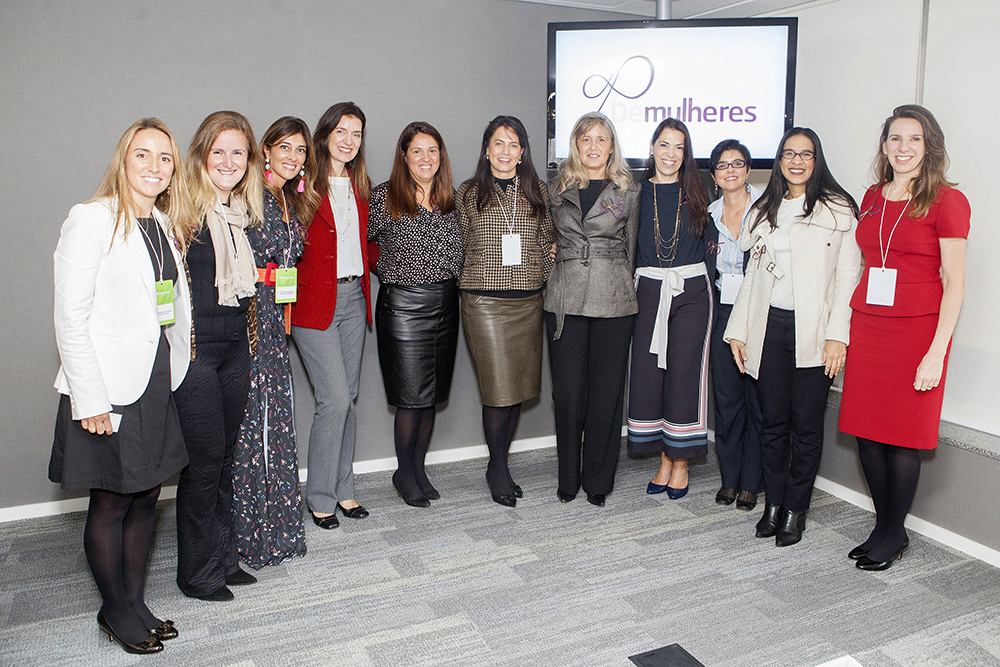
The consolidation of our social initiatives
Concentrating efforts to achieve social justice has always been in Demarest’s DNA. In 2017, the firm’s commitment to social causes resulted in more robust projects, particularly with the establishment of Demarest’s first affinity group: D Mulheres. The program was created with the aim of fostering the professional development of women and stimulating progress regarding gender equality within the corporate environment. But the firm strove to achieve more: in the same year, the firm arrange volunteer work initiatives and invited employees to participate, which resulted in the establishment of the affinity group D Ao Redor.


Seven decades and a talent pool of seven hundred
Demarest Advogados marked 70 years since its founding, comprising a deep bench of 700 professionals. After establishing a legacy of excellence in the world of law, the firm sought to positively impact society. Driven by its commitment to diversity and inclusion, Demarest Advogados implemented projects aimed at the LGBTI+ community (D Mais) and the fostering of ethnic-racial equality (D Raízes). The new affinity groups eventually became large support networks for employees of the firm, effectively stimulating debates regarding diversity and inclusion within the legal environment.
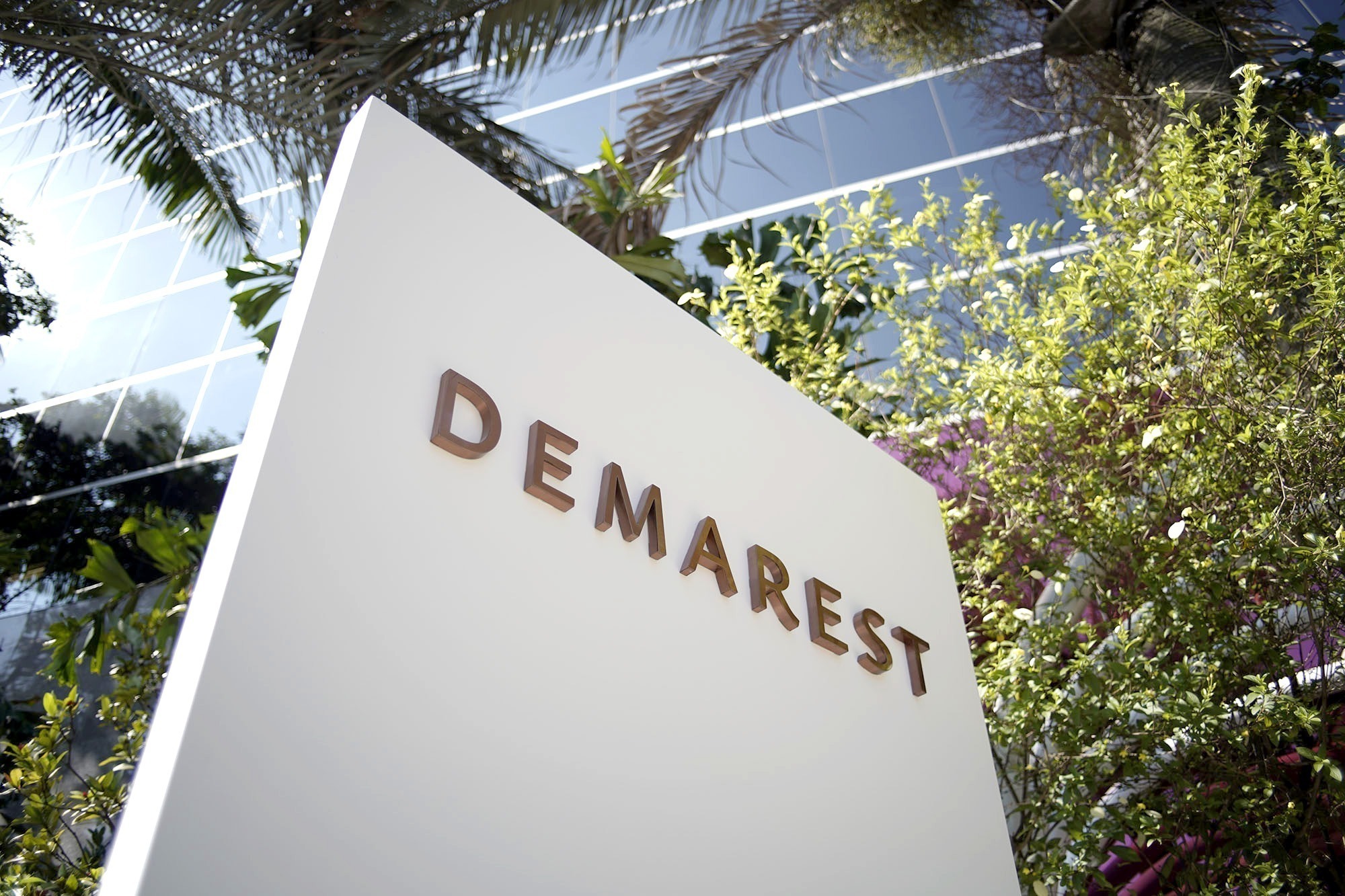
Designing a bright future
A rebranding project established a new visual identity for the firm. The new brand celebrated the firm's pioneering spirit and innovation and reinforced the main attributes linked to excellence in the practice of law. The word “advogados” and the green tones of the old logo were removed. The new image conveyed preparedness for the future, with more emphasis on the firm’s name and a more contemporary image, without abandoning the firm’s legacy and tradition with the clients and the market. This value was strengthened by the entry of nine partners, in total, in several strategic areas, such as Mergers and Acquisitions, Energy, International Trade, Tax, Oil and Gas, among others.
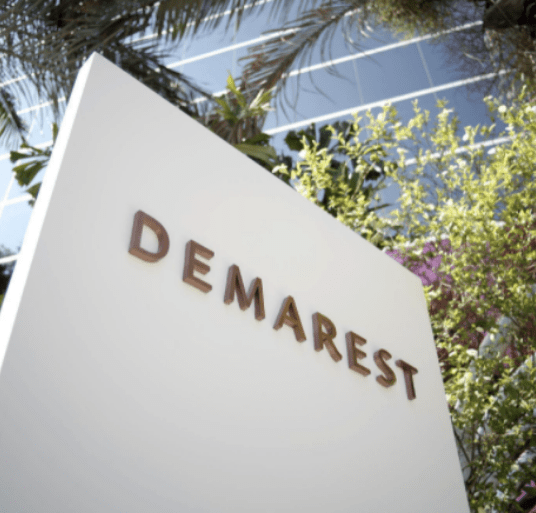
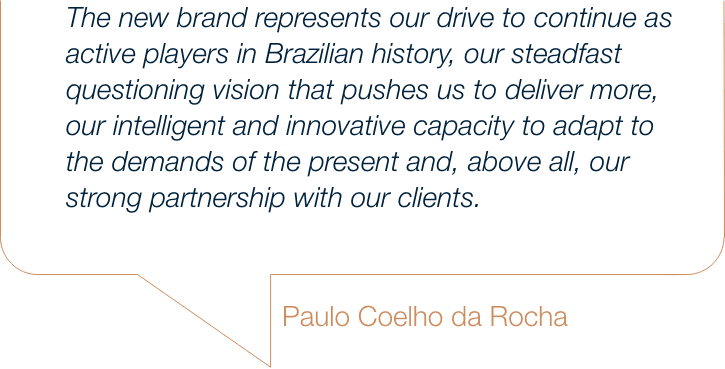
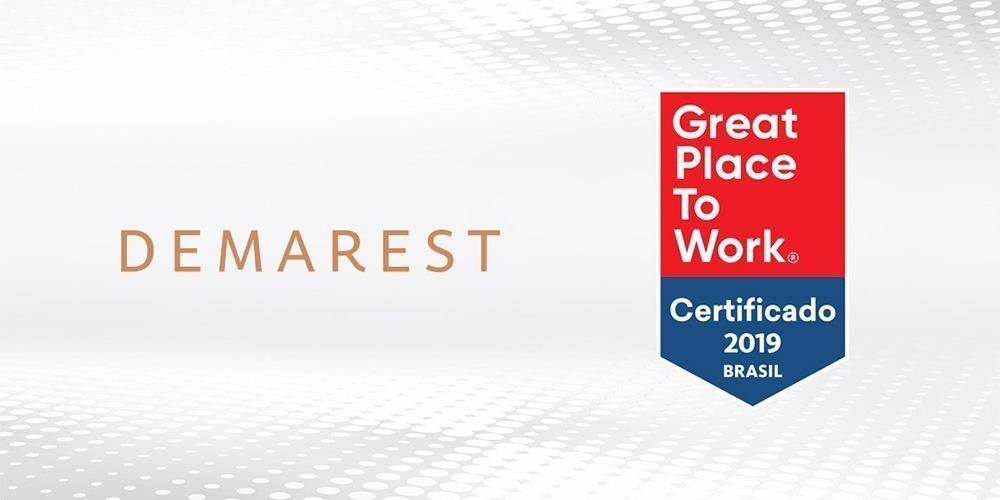
Recognition
and trailblazing

2020
New challenges
Demarest’s efforts to establish a healthy corporate environment were recognized with a certification from global consultancy Great Place to Work. In the same year, Demarest innovated among Brazilian law firms by hosting Demoday, an event in partnership with AB2L (Brazilian Association of Lawtechs and Legaltechs), which invited 16 companies of the technology sector to propose solutions aimed at innovating how law is practiced every day.
Faced with the challenges brought by the Covid-19 pandemic, Demarest ensured that all of its employees were cared for, consequently securing the excellence of the firm’s services. Although employees were working from home, the firm continued to hold events and run campaigns to engage the workforce within the digital environment. Demarest also ranked consistently among the top law firms according to national and international legal publications, in addition to being certified by Great Place to Work as one of the best companies for women to work in Brazil.

2021
Attention
to demands
from society

2022
Blazing a
trail in Corporate
Social Responsibility
Aware of a market that is rapidly and constantly changing, we created Disrupt, an initiative that aims to assist startups with innovative solutions that are in line with the financial progress and the stage of development of each company. In addition to this new initiative, we expanded our ESG area to meet the demands of the market in regard to corporate governance, environmental and social matters.
Within the five years since the creation of D Mulheres, our first Diversity & Inclusion initiative, annual recognitions and awards have established Demarest as a benchmark institution in the market. In 2022, the Government of the State of São Paulo awarded us the “São Paulo Diversity Seal”. We were also ranked by Instituto Mais Diversidade among the 38 best companies in Brazil for LGBTI professionals+.

2023 and the road ahead
In the years to come, we will remain committed to our purpose of effecting positive change in society and making a difference for our employees and clients, further establishing Demarest as a firm that is always Transcending Possibilities.







